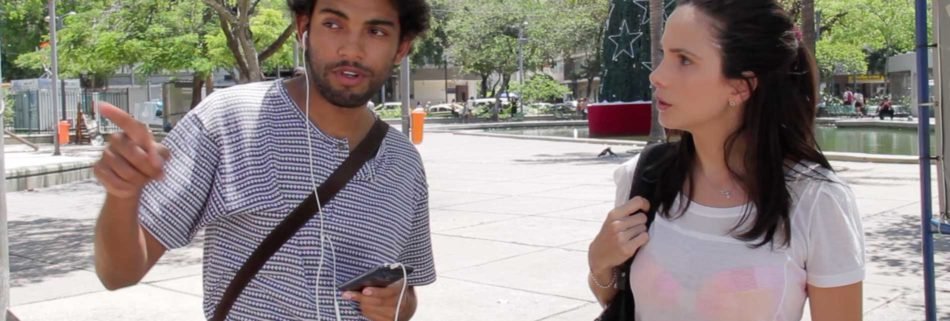This was a seriously scary moment moment for me. I could_not mess up my 1st attempt at speaking a complete sentence - to an actual brazilian - that was not, oi tudo bem. in actual Brazil. A failure would bring trauma. It would set me back months if not all the way to zero. I would be one of those people that, despite having studied, practiced and paid simply could not manage it. I would go to sleep practicing my delivery: Você sabe onde fica... o supermercado?... o banco?... a praia?... Was the emphasis on você, or on sabe or on the onde fica?
Have you decided what will be the first real sentence you try to speak?
For me, the construction Você sabe onde fica x , was perfect. It was useful. It would help me on my travels in Brazil and start a simple conversation. I thought I could also modify it - make it more casual, more conversational. Sabe onde fica o supermercado? (leaving the você off). Is it saa-be, or saBAY?
What if I said it wrong? What if they discovered that I really only had a handful of vocab words learned from Duolingo? How bad was I going to feel about myself if I messed it up? It's precisely this internal dialog that can quickly suck up your motivation, your time, your life. I knew that but it didn't matter. I was doing the only thing I knew how to do: worry and stress about learning Portuguese.
I wish I'd had some short video clips demonstrating just this one phrase!
You can drop the "você":
You can build on it:

Comentários